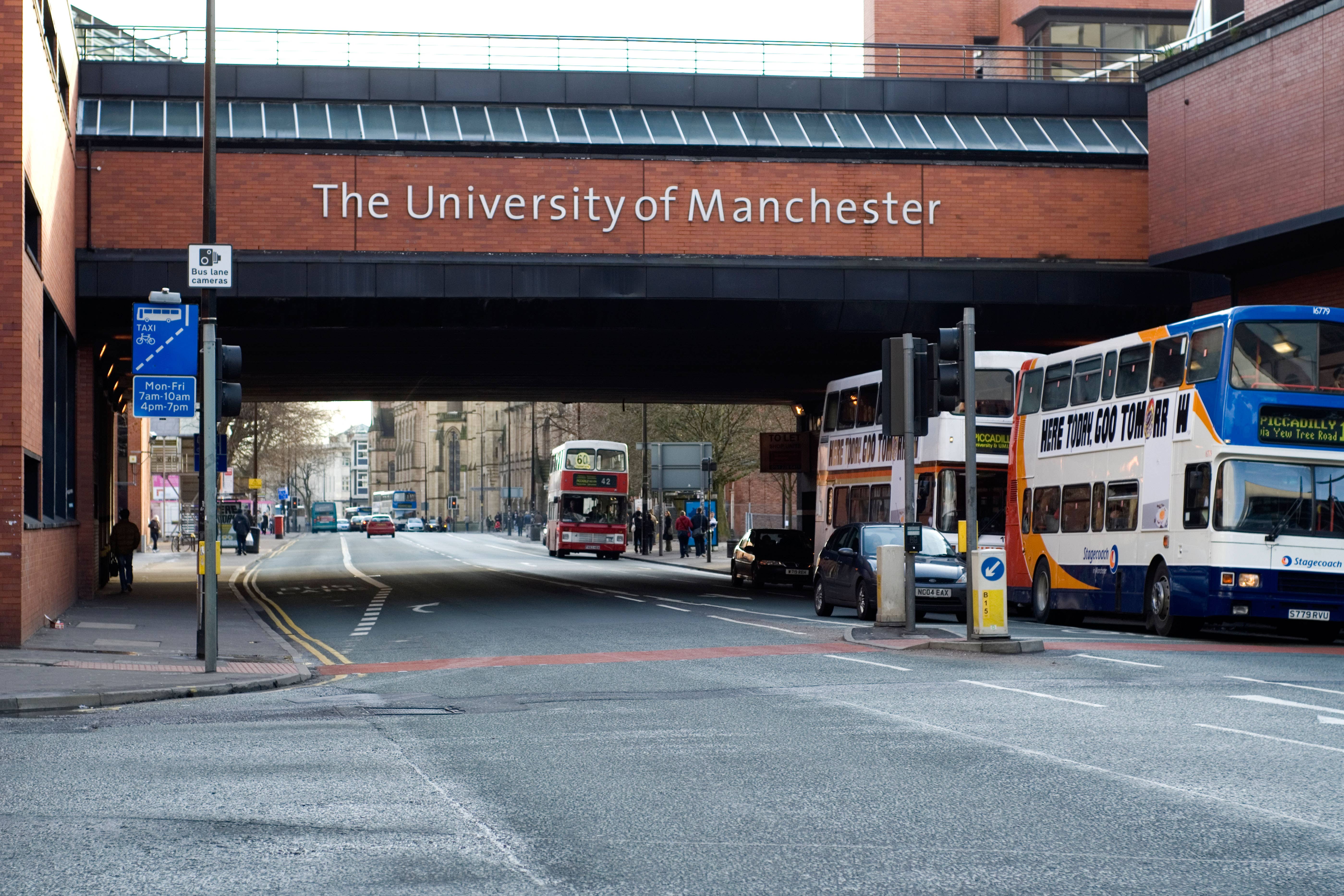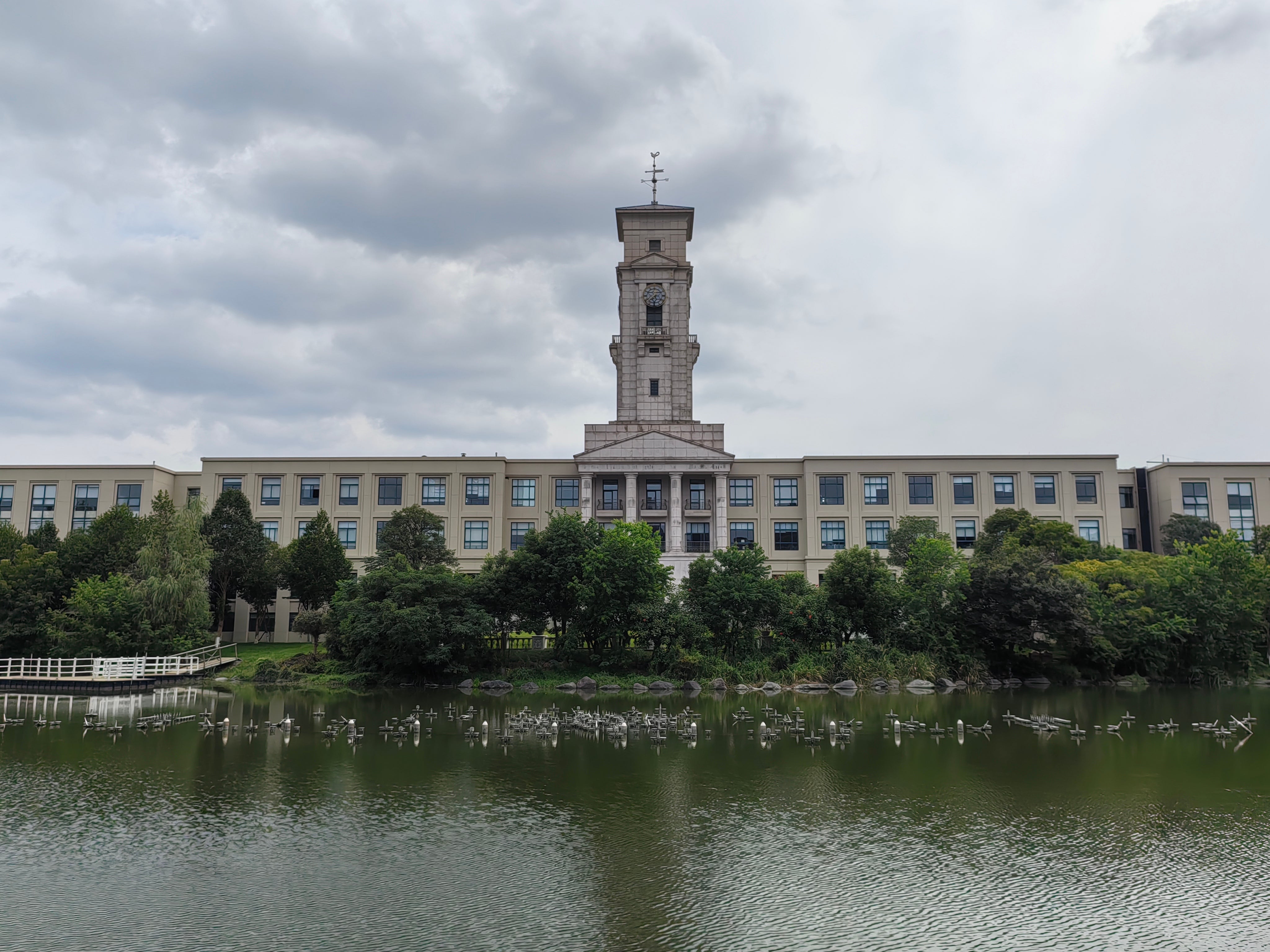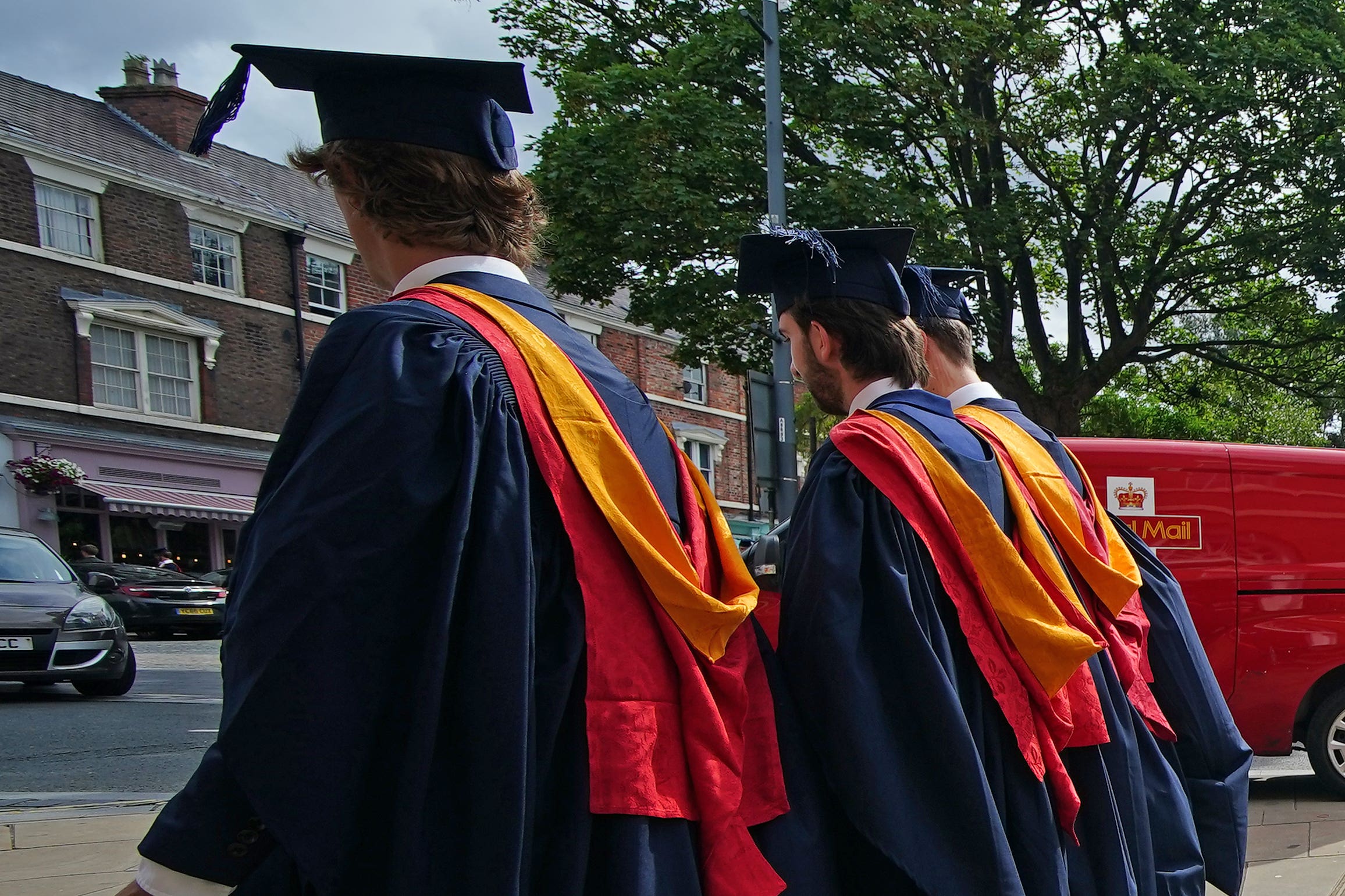China and the truth about the stealth takeover of UK universities
As concern grows among academics about how much influence Chinese authorities have in their teaching and research, Jonathan Margolis looks at how much the sector now relies on Chinese money and the clash over what that money should ‘buy’ you

O
ver the last decade, the debate over how much China is influencing our infrastructure and institutions has escalated. Whether it is technical infrastructure risks (Huawei/5G etc) or spyware being incorporated into Chinese-made phones or electric cars, there is a growing concern that we are becoming increasingly exposed to foreign entities who may not have our best interests at heart. And this week, that concern of stealth influence spread to universities.
There is increasing anger among UK academics at what they see as Chinese government interference with their lectures and research.
Just this past week, Professor Michelle Shipworth of University College, London, compared China’s influence on teaching there to “termites eating a house”. She related how Chinese MSc students, and then her own bosses at UCL’s Bartlett School of Environment, Energy and Resources, tried to get her to cut out references to abuses of human rights in China from a module she teaches on critical thinking in data analysis.
Prof Shipworth’s hair-raising account immediately followed the news that Sheffield Hallam University is facing a counterterrorism investigation over whether it broke security laws by stopping a project by Professor Laura Murphy examining forced labour in Chinese supply chains.
Previously, many universities with a large contingent of mainland Chinese students have been exposed as honing course content to avoid upsetting Chinese political sensitivities. Nottingham University, for instance, which has 25-year-old ties to the Chinese state, which include running a clone Nottingham in Ningbo, Zhejiang province, was accused by the Australian Strategic Policy Institute in 2019 of allowing Chinese military research on aeronautics to be done just off the A52 Derby Road.
Another think tank report in 2023 found that Chinese societies at universities posing as normal student associations are run by Beijing with the specific mission to harass pro-Hong Kong democracy activists and shut down campus debates about other issues, such as the Chinese repression of the Muslim Uyghur population in Xinjiang province.
To the Western, liberal mind – or what remains of it in a Western brain addled by Trumpism – however, these were all egregious examples of freedom being ripped apart. And you can be sure there are more revelations to come from within academia.
There’s a common Chinese saying: “If you take from someone, your hand is short; if you eat from someone, your mouth is soft.” It means, once you accept someone’s help or money, you lose the moral leverage to oppose them and must defer on all issues. It’s the Mandarin equivalent to “he who pays the piper calls the tune”.
British universities are grossly dependent on fees from mainland Chinese students for their very existence. According to the most meaningful statistic available, in the 2022-23 academic year, tuition fees from non-EU overseas students amounted to £10.9bn, which represented about 21.1 per cent of UK universities’ total income. A quarter of that was from Chinese students.
Another estimate put the fee income from China across 158 UK universities as £5.5bn or nearer 10 per cent of university income. In Chinese student hotspots, notably UCL, 40 per cent of total fee income is reportedly from Chinese students. At Manchester University, a quarter of the student body, almost 10,000 students, are now said to be from China.
No wonder, then, that Manchester has such fantastic Chinese restaurants of all regions. But no wonder either that China, taken as a whole, is not looking to British universities to teach its elite young people about critical thinking.
No culture I know takes value for money as seriously as the hybrid communist capitalism of China. The idea of buying a service and expecting it to be precisely to your liking is at the core of modern Chinese people’s – and businesses’ – thinking.

From my experience of working in China and retaining many Chinese friends and contacts, I would guarantee that the party hacks who pressurise British universities to tone down their content have no conception of this being anything other than reasonable.
Chinese parents and institutions pay heavily for a service, to improve their brightest students’ performance in tangible, professional skills that will make them more productive.
They don’t want students to come back from the UK full of questioning attitudes. It would be like in a previous time putting your daughter in a nunnery and having her come out an atheist.
Thinking with what we would call intellectual rigour is not just forbidden fruit in Chinese eyes – it’s plain wrong. The Chinese government accordingly doesn’t disguise its agenda. Professor Shipworth at UCL says it’s important that the Chinese education minister, Huai Jinpeng, understands the need to “effectively participate in global education governance”.
But there is a problem. As Prof Shipworth, Associate Professor at University College London (UCL) at the Bartlett School of Environment, Energy & Resources, told The Times this week, “Chinese students in particular struggle with critical thinking because their government explicitly does not want them to have those skills.”
She added: “You might have just one or two Chinese students in a department who are very nationalistic, but they can then impose pressure on the other Chinese students to act in a particular way, and the really scary thing is that they then report back to the (Chinese Communist Party) if the other Chinese students don’t do as the nationalistic Chinese students demand.”
As a professor, she says, you can get into trouble with the state in China if you teach your students liberal thinking, critical thinking skills and skills to critically assess factual claims. “But in the UK, we need our students to be able to do that to succeed in their dissertation. They could be absolutely brilliant on the quantitative side of things, but they struggle with writing essays and critical evaluation.”

This is not news to any western academic teaching in China. A German tutor at a Shanghai postgraduate business school told me when I was invited to speak there: “You have to understand, these guys are whip-smart, hardworking, serious and dedicated, but they have no tradition of critical analysis at all. My question, which is possibly disturbing to westerners, is whether this lack of analysis is what holds China back, or whether it’s the power that propels them forward.”
Another teacher I met, a Canadian, spoke about the same problem he encounters when teaching high school students. Jerry taught in Wenzhou, the small southern city where the modern capitalist tradition started in 1979. The city became extraordinarily rich, and the children of the wealthiest kids went to a school which is part of the Canadian system and teaches in English and French.
“The kids are a delight to teach and incredibly bright,” Jerry told me, “but they struggle with hypotheticals. They take everything very literally. If I say, ‘If you were an architect designing a new city, what would you like to build there?’ They will look at me as if I’m an idiot and say, ‘But I’m not an architect.’”
But it’s not just the questioning tradition of western intellectual life that is anathema to the communist Chinese mindset. There is also – and this is not a generalisation but is, nonetheless a reality well known to university teachers – a relaxed attitude to cheating at exams.
Prof Shipworth was accused at UCL of bias against Chinese students partly because of having identified two Chinese students of cheating, one of whom appeared to have hired a body double to complete their course. “I think universities prefer not to see cheating because of the money,” Shipworth said rather pointedly.
This brought back a memory of one of my acquaintances in China, Ying, a young woman from a middle-class family, who was living in secret, while a third-year business student, with her Australian tutor.
Over a lot of rice wine one evening, Minying admitted that she hires a more accomplished girl, but from a poor rural family, to sit her exams for her. “After all,” said Minying, knowing it was a kind of a joke, “We all look the same, don’t we?”
“Everyone with money does this,” she continued. “While this poor girl is doing my exams, I can concentrate on building my business.” True to her chosen course of study, Minying was buying cosmetics online from Taobao, the online shopping portal, and selling them to fellow students.

What might be called a pragmatic attitude to higher education was picked up on by the Chinese sitcom Ordinary Lives in 2017. Filming on the Nottingham Ningbo campus, the show included a scene effectively accusing the university of negligible academic standards.
“I was also at Nottingham University for four years,” one character said. “I understand my fellow classmates very well – they need only hand in their assignments on time to get their hands on a degree certificate.”
The university was furious. The provost called the line a “deliberate mis-representation and breach of trust”, and the broadcaster, Hunan TV, had to apologise and delete the scene and all reference to Nottingham University. But for those sceptical of these British university franchises in China (Nottingham started the trend, but there are now several campuses that have been rebuilt brick by brick there from Liverpool to Huddersfield) it’s not hard to get the point.
The young woman who admitted cheating on a grand scale, Minying, was not from a party family and loathed “those rich people from the party whose children go abroad to university”.
One such is another acquaintance, Jing, who is indeed from a well-connected family, and now, in her thirties, is back in Shenzhen, China’s Los Angeles-scale technology hub, as a public relations manager. But her business degree came from the University of Sunderland.
Her reflections on university in England don’t suggest she learned anything much about academic rigour or even mild inquisitiveness. She acquired a marked Wearside accent, a love of fish and chips (like most Chinese people), would go to Glastonbury and had British boyfriends. However, back in China, she now admits to hating Hong Kong people (”spoiled brats”), is pretty racist against black people and Muslims – and is a big fan of Donald Trump.
When I asked about the idea of critical analysis, however, she shrugged. “I don’t get it in any way,” she said. “Why do you people use up so much energy explaining what things aren’t. ‘This is a myth, this is arguable, this is unproven, blah blah.’ We are more interested in what is undebatable in the real world. Chinese people just want actionable facts.”
“Anyway,” she said, “what do you get for your clever questioning attitudes? Your democracy is a joke, your societies are in decline, you have crime on the streets and you totally rely on us for everything from hairclips to MacBooks.
“My parents were brought up in poverty and now they have a Mercedes and a big house. I read in the western press that the percentage of people in America who are hungry is much higher than in China. I’m sorry, but it’s your system that sucks, not ours.”

The truth is that higher education, especially with the hefty cost involved for those buying it and running it in the UK, has meant near bankruptcy for parents and institutions alike. It’s no surprise that we have got into the habit of relying on others to help us out. When that project appears to be going haywire, the right thing might be to pull the plug, but it doesn’t make it the easy thing to do.
Both UCL and Sheffield Hallam have refuted the allegations against them. Sheffield Hallam has denied any direct contact with Chinese security agents and apologised to Prof. Murphy and said: “(We) wish to make clear our commitment to supporting her research and to securing and promoting freedom of speech and academic freedom within the law.”
The NSI (National Security and Investment) Act came into effect three years ago and already grants the UK government the right to scrutinise and intervene in certain business or commercial acquisitions made by anyone, including universities, that could harm the UK’s national security. It means the government is able to impose certain conditions on an acquisition, and in rare instances, it may unwind or block an acquisition completely.
Many universities will now have built the NSI Act into their existing due diligence practices because China remains one of the top international student recruitment markets for the UK. The British Council estimated that in 2021, 150,000 Chinese students in the UK contributed over £5.4bn to the UK economy in tuition fees and living costs, and Universities UK reports that China continues to be the UK’s second largest research partner for academic co-authored publications between 2018 and 2023.
Comments
Post a Comment